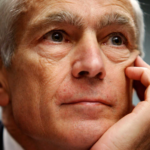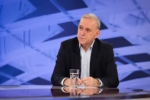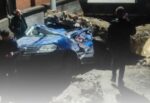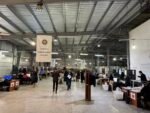The resolution on Srebrenica that was adopted by the UN General Assembly in Serbia was perceived as a global attack on Serbia, and since then almost every day someone from the ruling coalition talks about the topic of Srebrenica. It all boils down to genocide denial and the implication that the entire region is against Serbia or, as President Vučić says, the “moral mutilation of Serbia” and the “call for conflict and NATO intervention” that would lead to the “end” of Serbia . This is what Sonja Biserko, chairperson of the Helsinki Committee in Serbia, assesses in an interview for Pobjeda.
She emphasizes that it is also a kind of protection of the “Serbian world”, as well as the All-Serbian Assembly on St. Peter’s Day in Montenegro, in which Aleksandar Vučić was supposed to participate.
It is certainly an attempt to prove that the Montenegrin pro-Serb leaders are also committed to that project and above all to Vučić. However, the Serbian world is not doing well, because the region, as well as a part of the international community, constantly reminds Belgrade of the reality and the character of the wars of the 90s” – says Biserko and explains that Serbia cannot. escape, so ignore the fact that all the successor countries of Yugoslavia recognized them internationally and that the West will protect those borders”.
Three delegations from Montenegro went to Potoçare to mark July 11 – what does this tell us? Everyone should send their own representative because they don’t trust the other…?
BISERKO: Montenegro recognized the genocide in Srebrenica long ago and was regularly present in Potocari on July 11, including President Milo Djukanovic. However, the changed political circumstances since 2020 and the penetration of Belgrade and Moscow into the political life of Montenegro have led to turbulence in which Belgrade in particular is trying to hinder and cancel Montenegro’s Euro-Atlantic orientation. Of course, this is also evident through the very confusing behavior of the political elite in power in Montenegro. Both the president and the prime minister lack political experience and conviction, behave like matchmakers and inconsistently, but Quinta directs them to maintain the course of the previous government. Serbia’s quiet occupation of Montenegro collides with NATO, which, it turns out, is the only guarantee of Montenegro’s survival until the Montenegrins themselves rebel against Belgrade’s arrogant and condescending behavior.
Montenegro was praised by the EU and given IBAR, at the same time it adopted the Resolution on Jasenovac, Mauthausen and Dachau and received a warning from Croatia that it will respond: resuming the border issue in Prevllaca, and possibly the ban of the entry into Croatia of the deputies who voted for the Resolution. Where does this double policy of Montenegro lead, does Serbia try to sit on several chairs at the same time?
BISERKO: The Resolution on Jasenovac, Mauthausen and Dachau is an initiative of Belgrade in response to the Resolution on Srebrenica. It was planted cowardly in Montenegro, which was accepted by exponents in Belgrade. The resolution on Jasenovac is unnecessary and counterproductive, because it can and probably will affect relations with Croatia. However, the granting of IBAR to Montenegro is also part of the EU’s strategy to admit Montenegro to membership by 2027, which is essentially a counter to the efforts of Belgrade and Moscow. The fact that representatives of Montenegro went to Srebrenica in three columns also shows that the EU and NATO act by not allowing the Montenegrin orientation to be challenged.
The Prime Minister and the President of Montenegro are in a political deadlock over different issues, even though they come from the same movement: according to what we have heard from both so far, which one depends more on Belgrade?
BISERKO: I cannot answer the question with certainty because I do not have daily knowledge of their behavior. However, it seems that Spajić is less dependent. His problem is that he has no commitment to Montenegro, he has no values that he would be known for, but above all he is a weak personality who focuses only on his survival in power.
What is the most important thing for the EU when the domestic political situation in Montenegro is on Wednesday? According to the statements of European officials, how much support does Prime Minister Spajic really have?
BISERKO: The EU cooperates with the authorities, but at the same time tries to keep Montenegro in the orientation described earlier. Therefore, it is important for the EU to make progress on the reforms necessary for membership, to respect the EU’s foreign policy… IBAR was given as an encouragement, but at the same time it is a confrontation between Belgrade and Moscow.







